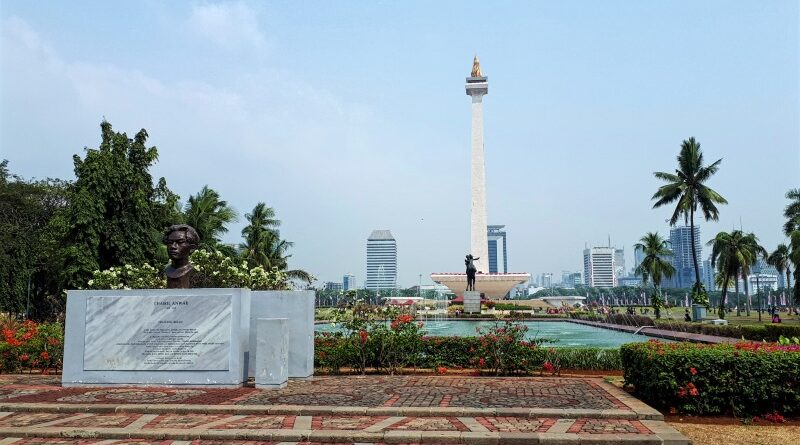A Day in Jakarta: Exploring Indonesia’s Bustling Capital City
In this destination trip report, we will explore the sights of Jakarta (Indonesia) in one full day.
Visiting Jakarta
If you read online forums and trip reports, chances are that many people will suggest you to skip Jakarta altogether when visiting Indonesia.
They would argue that Indonesia’s best sights can be found on its pretty islands such as Bali or Lombok, or in other cities on the island of Java such as Yogyakarta.
While that might be correct in some aspects, I thought it would be a bit weird to miss out on Indonesia’s capital city.
First of all, Jakarta does have a lot of history. Under Dutch colonial rule it was known as Batavia, and there are still quite a few historical sights remaining from this historical period.
Secondly, sometimes even gritty megacities can have certain charms if you try hard enough to find them, so I thought it would be best to give Jakarta a fair shot.
Jakarta itinerary
In the end, I planned 2 nights in Jakarta. As I only arrived late in the afternoon on day one, that basically meant I would have a full 24 hours on my second day for sightseeing in Jakarta.
Another advantage of staying for one or two nights in the city is that it would allow me to break up my journey and rest a bit after the long flight from Europe to Indonesia.
This turned out to be a great decision, as on my first day I certainly enjoyed all the luxury and comfort of the historic Hermitage hotel, which I can highly recommend to anyone in search for good quality accommodation in Jakarta.

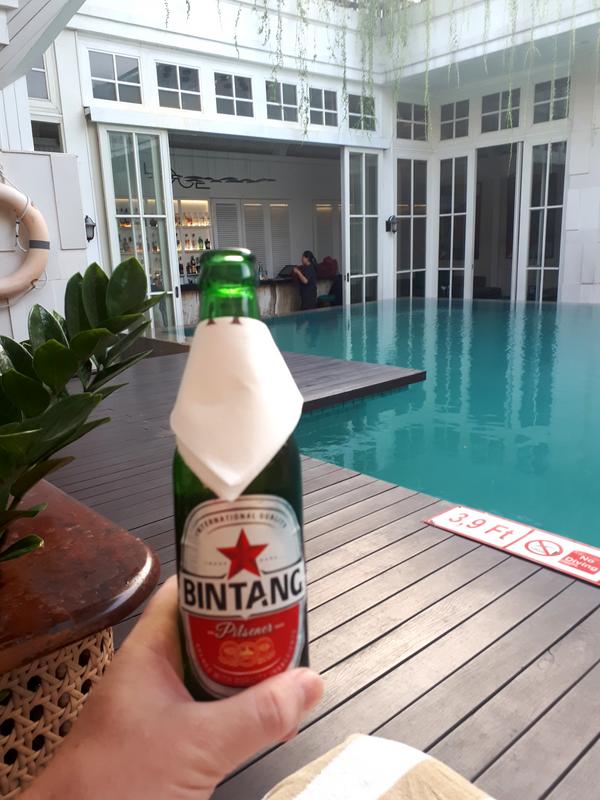
Merdaka
After a day acclimatising at the hotel and an excellent night’s sleep, I was ready to explore the sights of Jakarta.
I started my trip by taking a taxi to Merdeka Square, which translated to English means Freedom or Independence Square.
Merdaka Square is the site of the National Monument, which is dedicated to Indonesia’s struggle for freedom and independence from Dutch colonial rule.
The Dutch were hesitant to give up their precious colony after World War II, with many MPs and citizens thinking it would spell doom to the future of the Netherlands.
However, the Indonesians would not give in as they saw that the momentum was firmly on their side as one country after another gained its independence in the years following the Second World War.
After a few bloody years in which tens of thousands of Indonesians lost their lives in guerrilla war against their colonial overlords, the Dutch finally gave in after severe pressure from the American Government to grant Indonesia its independence.
On 27th December 1949, Queen Juliana signed a document which transferred full sovereignty to the newly proclaimed Indonesian Republic.


Picnic spot
There is actually not that much to see or do at Merdaka Square, which actually feels more like a park than a square.
That said, the grounds are quite nice for a stroll.
Many Indonesian families were doing the exact same, making the park a good place for people watching.
Quite a few locals even brought entire picnic sets with them to sit somewhere on the grounds for a family meal with a view.
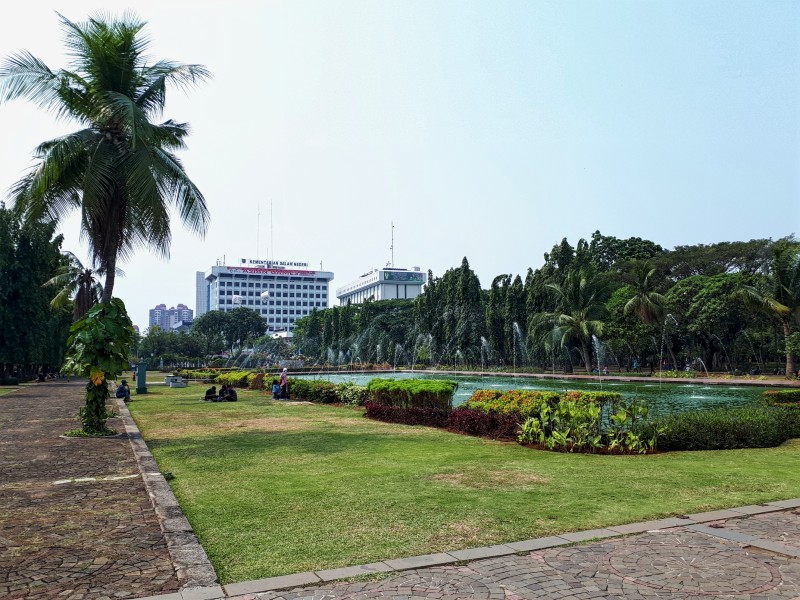

Public transport
Whenever I’m visiting a foreign city I always prefer to use public transport as it often gives a great insight into local life.
Certainly in an overcrowded, congested city like Jakarta, taking a local train is a viable option as the travel time is often shorter than taking a taxi.
Unfortunately, Jakarta’s rapid transit system is not the world’s best and has some quirks.
Although Gambir station is just a stone throw away from Merdaka Square, it is only used as starting point of intercity trains to destinations all over Java.
For whatever reason, it means that all local trains do not halt at Gambir, even though they do stop at every other single station on the line.
I thus had to walk quite a bit further to Juanda station in order to catch one of these suburban trains.
Fortunately, buying a electronic card for the commuter train system was super easy and within minutes I was on a northbound train towards the old city centre of Jakarta.
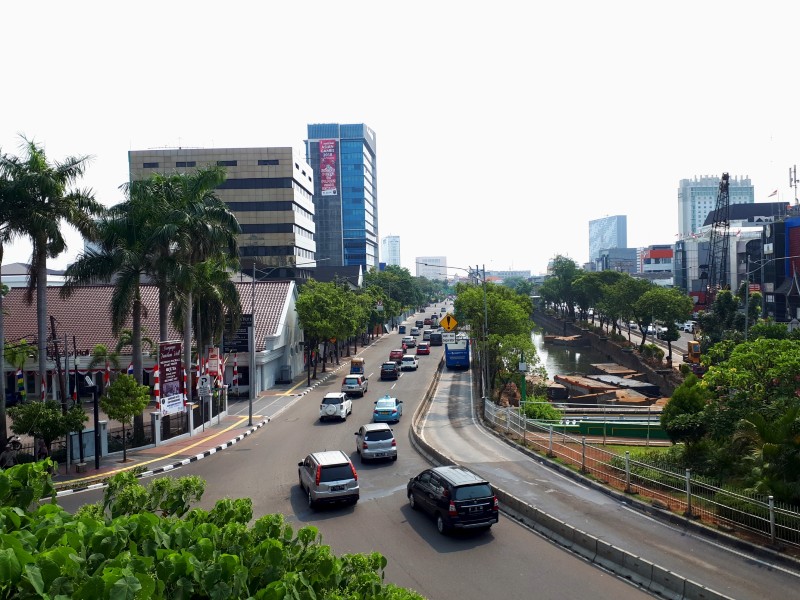
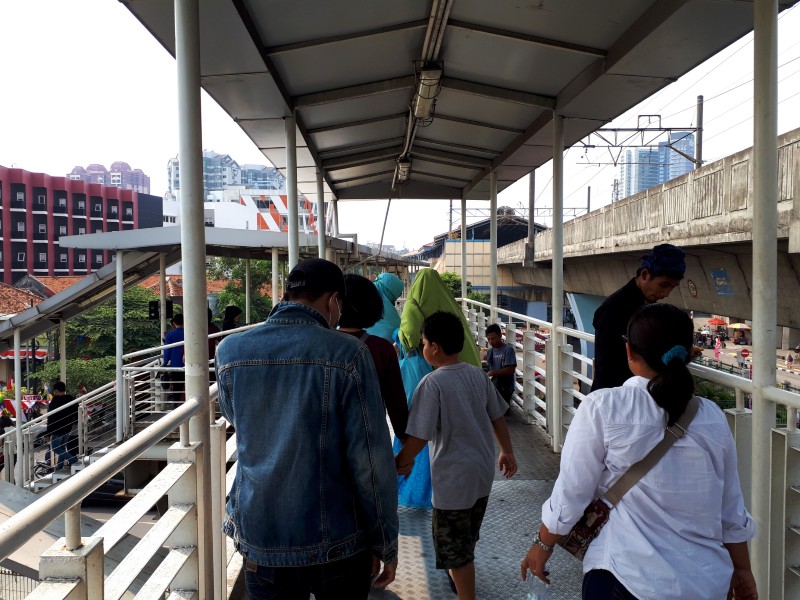



Kota station
I stayed on the train until the final stop: Jakarta Kota station.
Built in 1929 by the Dutch, it used to be the historic terminus of the Indonesian railway network. Nowadays it is however only used by local services.
Kota station is still a busy place though given its proximity to the old town.
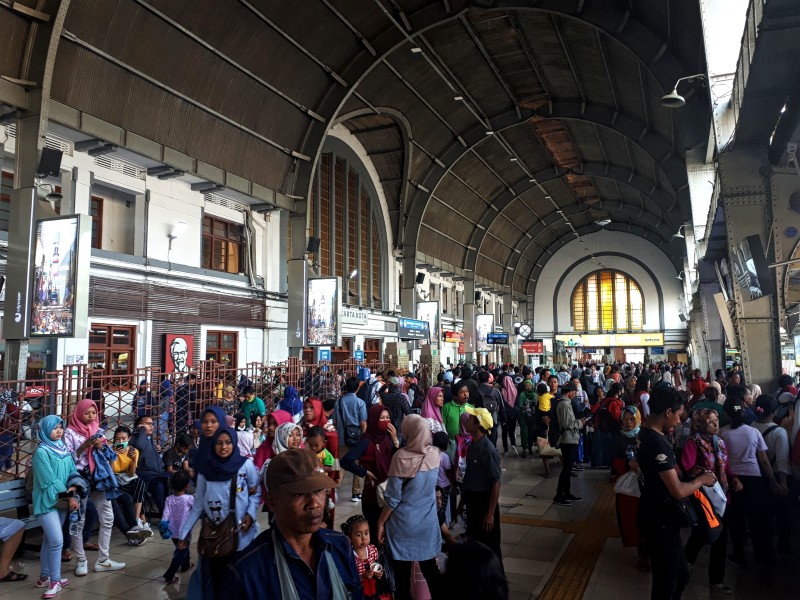
Old town
From Kota, I walked to the old town through some underpasses and on some small or non-existing pavements right between the busy traffic.
Jakarta reminded me a bit of the Philippine capital of Manila, another chaotic Asian megacity infamous for its gridlocked traffic and limited public transport system.
Just like the Philippines, also in Indonesia the most beautiful parts of the country can be found out of the cities on one of the many islands of the archipelago, and probably not in the capital.
When taking a picture of the national bank I was halted by a security guard.
I expected him to be angry at me for making a picture, but it turned out the guy was actually wanting to welcome me to Indonesia and just wanted to have a short talk.
After many previous travels to countries in the former Soviet Union where you are often chastised for making pictures of government buildings, I was happily surprised.
If one thing would stand out during this trip it would be the kindness and welcoming nature of the Indonesian people – which in my opinion was even better than the already high standards found elsewhere in Asia.
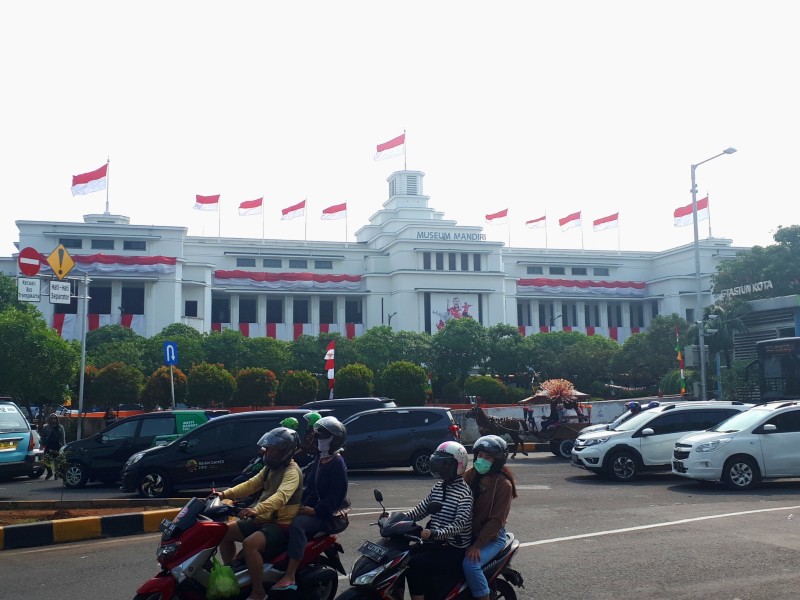




Dutch colonial architecture
The old town of Jakarta is rather small, but is fully pedestrianised. On this weekend day it was immensely crowded with thousands of locals going for a walk.
The heart of Jakarta’s old town is Fatahillah Square (Taman Fatahillah), which used to be the focal point of colonial Batavia.
The beautiful building with its white exterior and red-tiled roof used to be the administrative headquarter of the Dutch East India Company (VOC) and was later used as the city hall of Batavia. Nowadays the building houses a history museum.
It was quite funny to see locals renting old bicycles for five or ten minutes just to drive in small circles on the square and to make some pictures.
A group of schoolchildren even approached me and started asking questions in English! They wanted to know what I was doing here and what I thought of their country and were insisting on some pictures together as well.
When a second and third group came to me asking the exact same set of questions I suddenly realised they were out on an assignment for their English class and had the task of talking to foreign tourists!



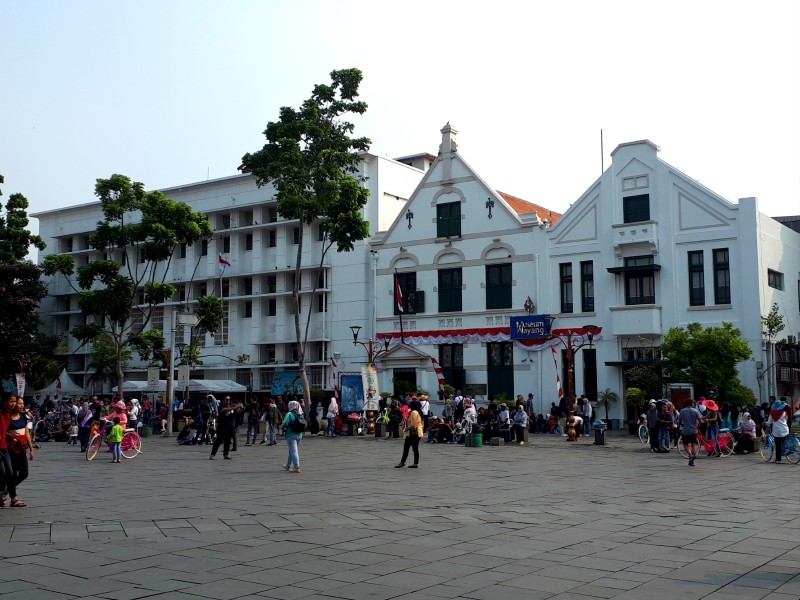
Lunch
After helping out six or seven groups of local schoolkids with their assignment, it was time to head for lunch. In the old town, there is no better spot than Café Batavia – a Jakarta institute.
This colonial Dutch grand café is a lovely historical spot for a drink or a meal.
Although it was tempting to order some typical Dutch pub food (like a portion of ‘bitterballen’) from the menu, I settled for a yummy satay platter in the end which went down well with a beer or two.
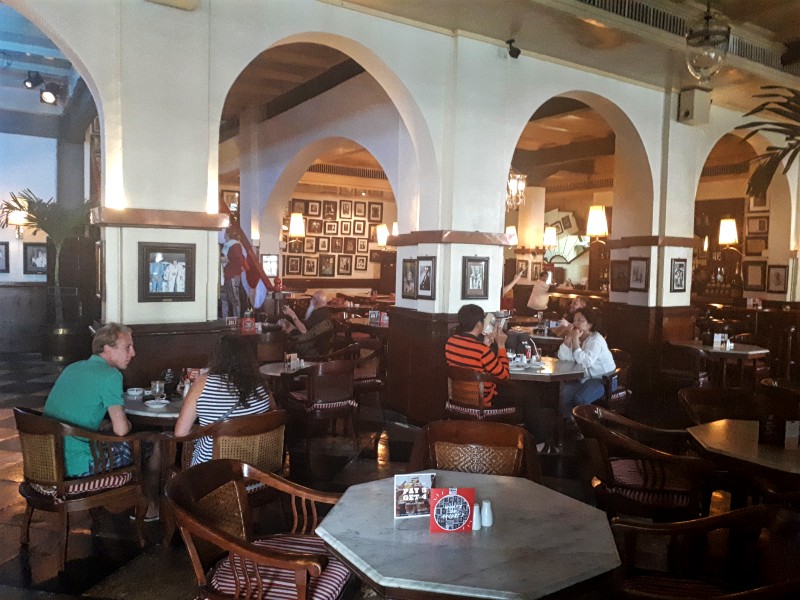
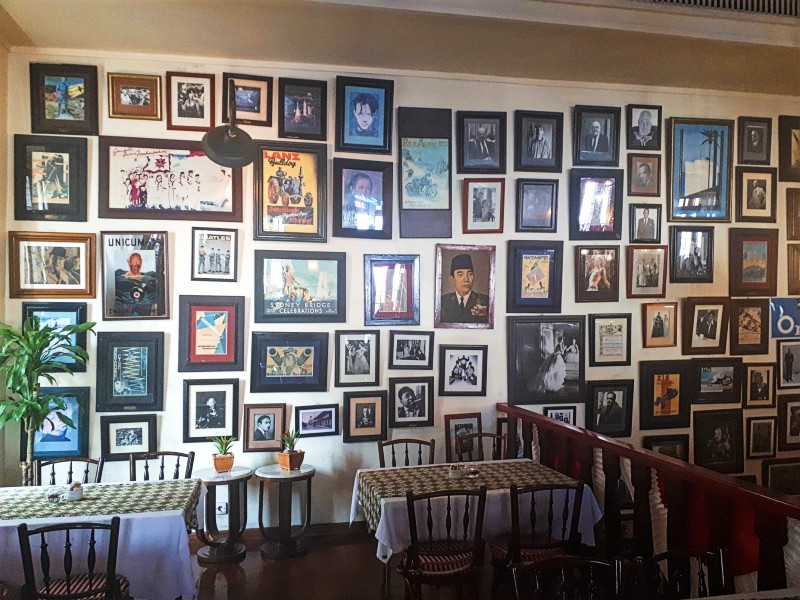

Smog
Afterwards the tasty lunch, I wandered around the old town a bit more, but besides an old Dutch draw-bridge there wasn’t actually that much to see.
By mid-afternoon, the hot weather and especially the bad air quality (smog!) had tired me out completely, so I decided to hop in a taxi back to my hotel.
For dinner, I just ventured outside in the upscale Menteng neighbourhood to eat more satay (did I say already I love satay?) from a friendly local operating a roadside satay-cart.
Before going to sleep, I had another cocktail or two from the excellent roof top bar of my hotel.
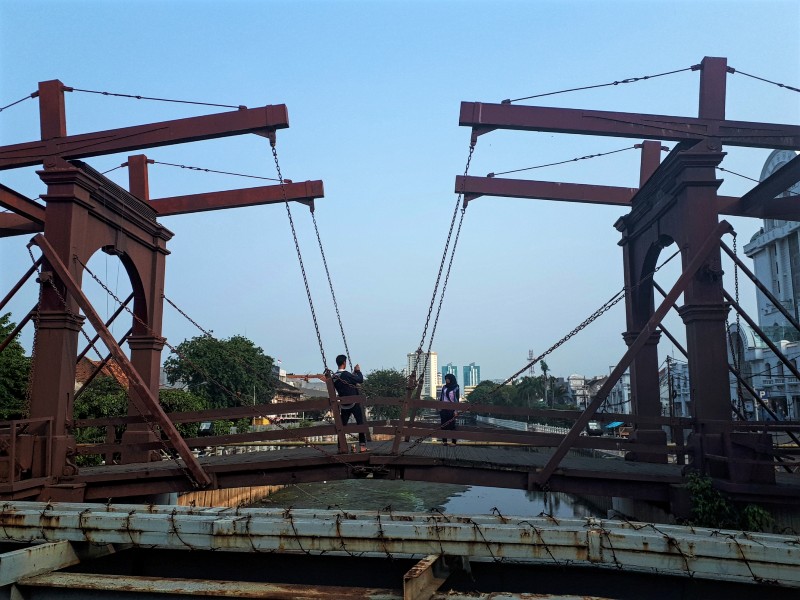


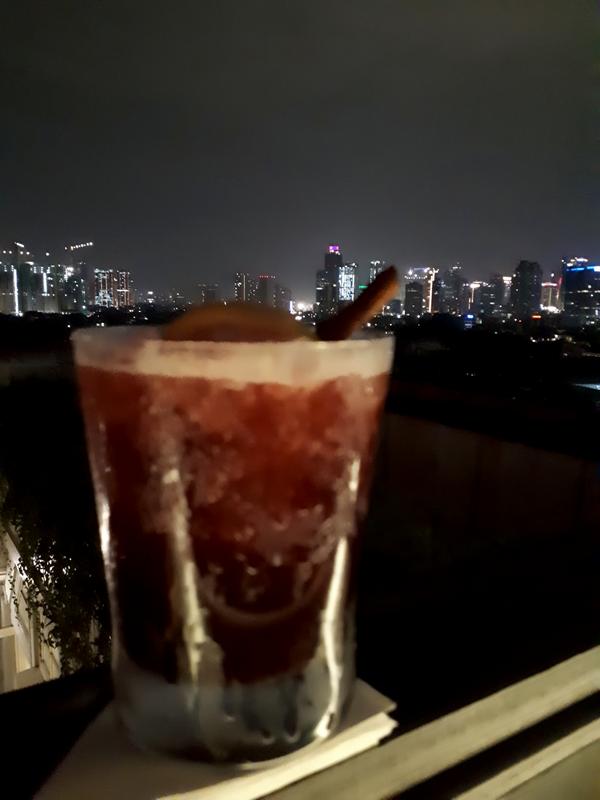
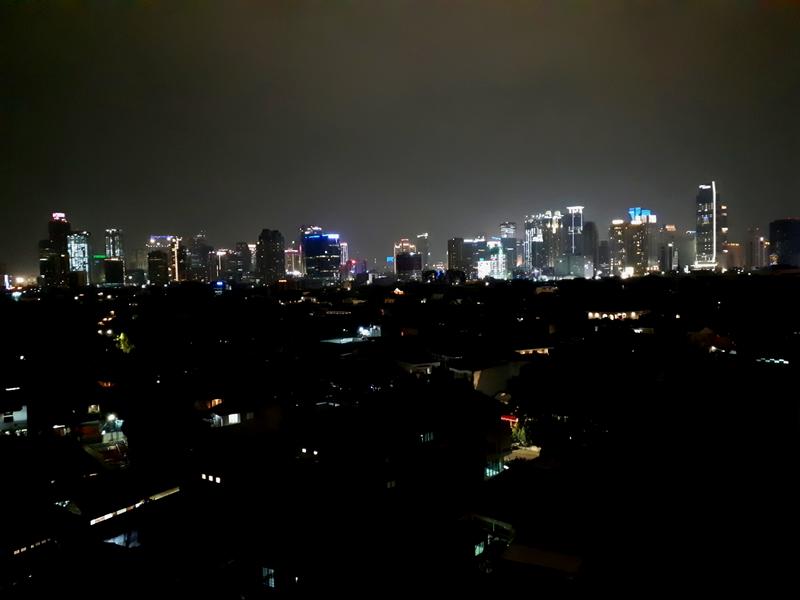
Conclusion
Jakarta isn’t a particularly beautiful or interesting city. The few proper sights can easily be seen in half a day and what’s left besides it is basically a massive urban sprawl of little touristic interest.
Sure, I believe that there is quite some local life to be enjoyed once you scratch beneath the surface – but for the average tourist Jakarta will not an instantly likeable city.
Did I however regret spending one day in Jakarta? Absolutely not. I would have felt bad if I would have skipped it, given it still is a lively, important city.
There are some great hotels in Jakarta – such as the lovely Hermitage hotel in which I stayed – making the city a good place to recuperate from a long-haul flight when arriving in Indonesia, or a good final stop before you fly back home.
I still think the comparison to Manila in the Philippines which I made in the article does hold up.
Like Jakarta, Manila is a massive urban jungle with a small historic heart. Jakarta very much felt like the same.
Jakarta exists out of gridlocked roads, mad crowds, urban sprawl and lots of air pollution – but it does have an interesting enough Dutch colonial heart.
If you do have time and can fit Jakarta into your Indonesian itinerary, by all means do so as I don’t think you will regret it – but it wouldn’t be a big crime either if you decide to leave it out entirely on your Indonesia trip.
Trip report index
This article is part of the ‘Journey to Java‘ trip report, which consists of the following chapters:
1. Review: Wizz Air Bucharest to Rome Ciampino (Airbus A321)
2. Half a Day in Rome: A Walk Around the Eternal City
3. Review: Casa Alitalia Lounge ‘Piazza di Spagna’ Rome Fiumicino Airport
4. Review: Saudia Business Class Rome to Riyadh (Airbus A320)
5. Review: Saudia Alfursan Business Lounge Riyadh Airport
6. Review: Saudia Business Class Riyadh to Jakarta (Boeing 777-300)
7. Review: The Hermitage, a Tribute Portfolio Hotel, Jakarta, Indonesia
8. A Day in Jakarta: Exploring Indonesia’s Bustling Capital City (current chapter)
9. Review: Garuda Indonesia Domestic Business Lounge Jakarta Airport
10. Review: Garuda Indonesia Business Class Jakarta to Yogyakarta (Boeing 737-800)
11. Review: The Phoenix Hotel Yogyakarta – Mgallery By Sofitel
12. A Magical Sunrise Visit to Borobudur Temple
13. A Visit to the Great Hindu Temple Complex of Prambanan
14. Review: Yogyakarta to Surabaya (Indonesia) by Train
15. Review: Majapahit Hotel, Surabaya, Indonesia
16. A Day in Surabaya: Exploring Indonesia’s Second Biggest City
17. Review: Concordia Premier Lounge Surabaya Airport
18: Review: Singapore Airlines Business Class Surabaya to Singapore (Airbus A330-300)
19. A Short Singapore Stopover: Into the City or Stay at the Airport?
20. Review: SilverKris Lounge Singapore Changi Airport Terminal 2
21. Review: Singapore Airlines Business Class Singapore to Manila (Boeing 787-10)
22. Review: PAGSS Business Lounge Manila Airport Terminal 1
23. Review: China Airlines Economy Class Manila to Taipei (Airbus A330-300)
24. Review: China Airlines Business Lounge Taipei Airport Terminal 1
25. Review: China Airlines Economy Class Taipei to Rome (Airbus A350)
26. Review: TAROM Economy Class Rome to Bucharest (Boeing 737-700)

